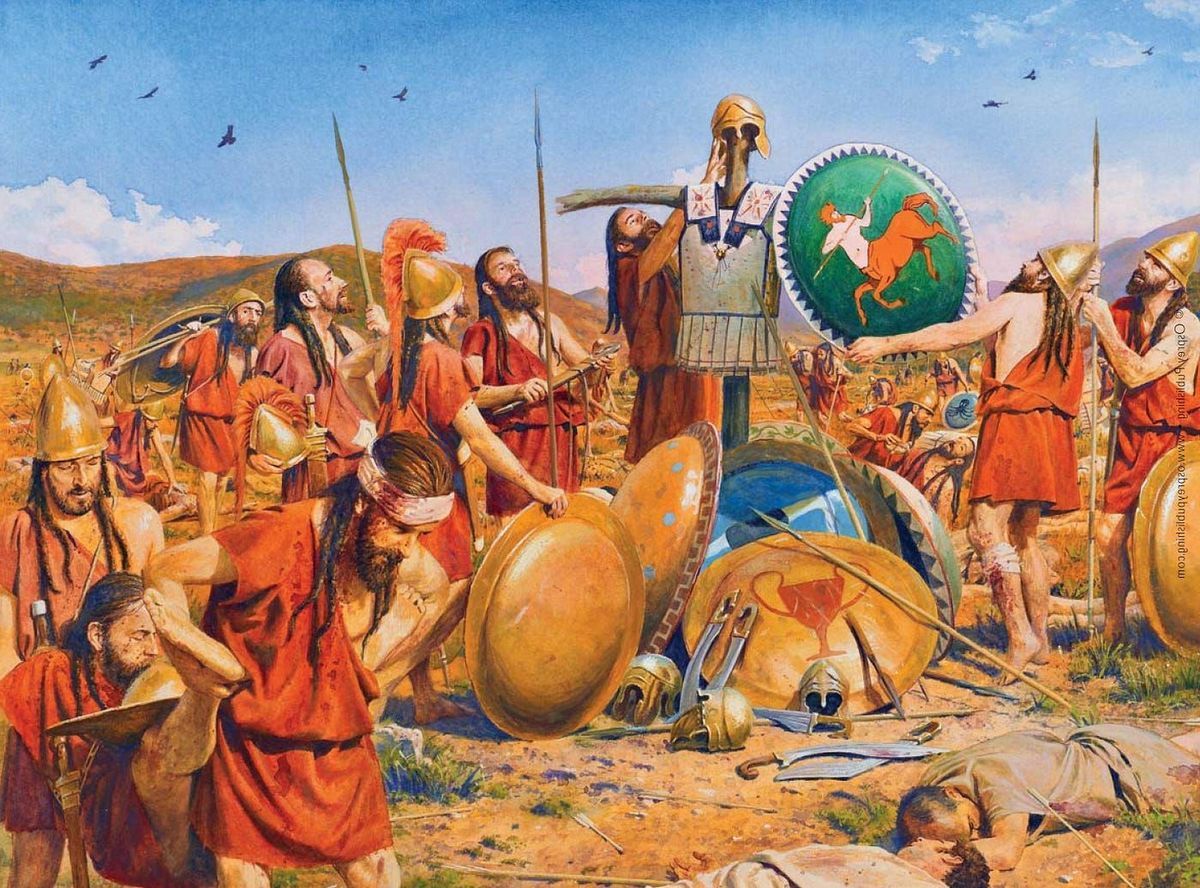
Why was the Peloponnesian War significant? The Peloponnesian War was a monumental conflict in ancient Greek history, lasting from 431 to 404 BCE. This war pitted Athens against Sparta, two of the most powerful city-states of the time. The struggle wasn’t just about territory; it was a clash of ideologies. Athens represented democracy and naval power, while Sparta stood for oligarchy and military might. The war reshaped the Greek world, leading to the downfall of Athens and a shift in power dynamics. Understanding this conflict helps us grasp the complexities of ancient politics, warfare, and the fragile nature of alliances.
The Peloponnesian War: An Overview
The Peloponnesian War was a monumental conflict in ancient Greece that pitted Athens against Sparta. This war, lasting from 431 to 404 BCE, shaped the course of Greek history. Here are some fascinating facts about this epic struggle.
- The war was primarily fought between the Delian League, led by Athens, and the Peloponnesian League, led by Sparta.
- The conflict is divided into three main phases: the Archidamian War, the Sicilian Expedition, and the Ionian or Decelean War.
- The historian Thucydides documented the war in his work, “History of the Peloponnesian War,” providing a detailed account of the events.
Key Figures and Battles
Several key figures and battles defined the Peloponnesian War. These individuals and events played crucial roles in the outcome of the conflict.
- Pericles, the Athenian leader, was instrumental in the early years of the war, advocating for a defensive strategy.
- The Battle of Sphacteria in 425 BCE saw the capture of 292 Spartan soldiers, a significant blow to Spartan morale.
- Brasidas, a Spartan general, led successful campaigns in northern Greece, capturing the important city of Amphipolis.
- The Sicilian Expedition (415-413 BCE) was a disastrous Athenian military campaign against Syracuse, resulting in a massive loss of Athenian ships and soldiers.
Strategies and Tactics
Both Athens and Sparta employed various strategies and tactics throughout the war. These approaches often reflected their unique strengths and weaknesses.
- Athens relied heavily on its powerful navy to control the seas and supply lines.
- Sparta, known for its formidable land army, focused on ravaging the Athenian countryside to weaken its economy.
- The use of siege warfare became more prevalent, with both sides attempting to capture fortified cities.
- Guerrilla tactics were employed by smaller states and factions, adding complexity to the larger conflict.
Political and Social Impact
The Peloponnesian War had profound political and social consequences for the Greek world. These changes influenced the course of Greek history for centuries.
- The war led to the eventual downfall of Athenian democracy, as internal strife and external pressures mounted.
- Sparta’s victory did not bring lasting peace, as it struggled to maintain control over its allies and territories.
- The conflict weakened the overall Greek city-states, making them vulnerable to future invasions, notably by Philip II of Macedon.
- The war caused significant economic hardship, with many cities experiencing destruction and loss of resources.
Cultural and Intellectual Legacy
Despite the devastation, the Peloponnesian War also left a lasting cultural and intellectual legacy. The conflict inspired numerous works of literature, philosophy, and art.
- Thucydides’ historical account remains a crucial source for understanding the war and its impact.
- The war influenced Greek drama, with playwrights like Aristophanes using it as a backdrop for their works.
- Philosophers such as Socrates and Plato reflected on the war’s moral and ethical implications.
- The conflict spurred advancements in military technology and tactics, influencing future generations of warfare.
Notable Aftermath and Consequences
The aftermath of the Peloponnesian War had far-reaching consequences for Greece and beyond. These outcomes shaped the future of the region in significant ways.
- The Treaty of Nicias in 421 BCE temporarily halted hostilities but ultimately failed to bring lasting peace.
- The Thirty Tyrants, a pro-Spartan oligarchy, briefly ruled Athens after its defeat, leading to a period of political repression.
- The war’s end marked the beginning of Spartan hegemony in Greece, though it was short-lived.
- The conflict contributed to the rise of Thebes as a major power, challenging Spartan dominance.
Interesting Tidbits and Lesser-Known Facts
Beyond the major events and figures, the Peloponnesian War is filled with intriguing and lesser-known details that add depth to our understanding of the conflict.
- Plague struck Athens in 430 BCE, killing a significant portion of its population, including Pericles.
- The Melian Dialogue, recorded by Thucydides, highlights the brutal realpolitik of the time, with Athens demanding submission from the neutral island of Melos.
- Alcibiades, a controversial Athenian leader, switched allegiances multiple times, serving both Athens and Sparta during the war.
- The war saw the use of psychological warfare, with both sides attempting to demoralize their enemies through propaganda and intimidation.
- The conflict inspired later military leaders, including Alexander the Great, who studied the strategies and tactics employed during the war.
The Lasting Impact of the Peloponnesian War
The Peloponnesian War wasn’t just a clash of armies; it reshaped ancient Greece. Athens, once a powerful city-state, saw its influence wane. Sparta, though victorious, faced its own set of challenges. This war highlighted the fragility of alliances and the devastating effects of prolonged conflict. It also paved the way for the rise of Macedonia under Philip II and later, Alexander the Great. The war’s lessons on strategy, politics, and human nature still resonate today. Understanding this conflict gives us insight into the complexities of power and the consequences of war. The Peloponnesian War remains a pivotal chapter in history, reminding us of the enduring impact of human ambition and rivalry.
Was this page helpful?
Our commitment to delivering trustworthy and engaging content is at the heart of what we do. Each fact on our site is contributed by real users like you, bringing a wealth of diverse insights and information. To ensure the highest standards of accuracy and reliability, our dedicated editors meticulously review each submission. This process guarantees that the facts we share are not only fascinating but also credible. Trust in our commitment to quality and authenticity as you explore and learn with us.


